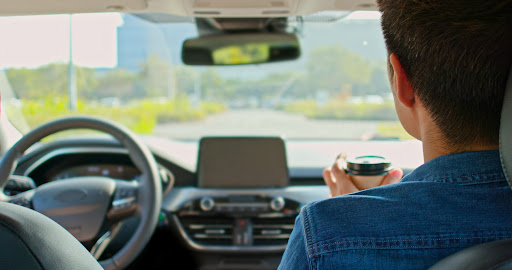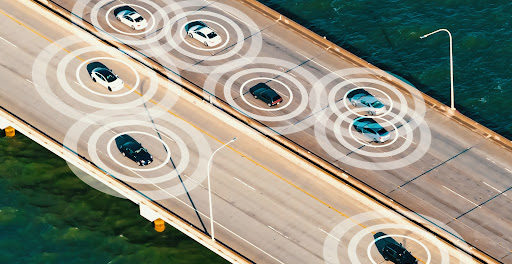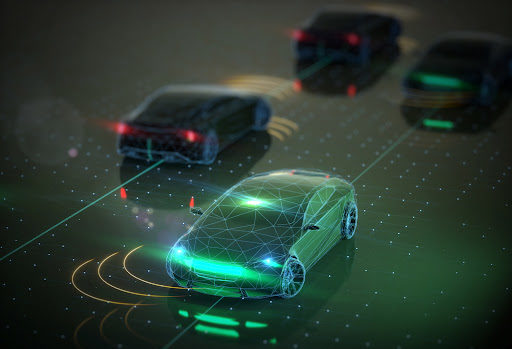Self-Driving Car Accident Lawyer in Louisiana

If you’ve been paying attention to automotive news, you’re probably excited for the prospect of fully autonomous driving on the horizon. Even now, multiple manufacturers are hard at work developing the self-driving tech of the future, and some models are equipped with some sort of autonomous capability you can try today.
However, even robotic automobiles aren’t foolproof against accidents and injury. No programmer can anticipate every possible eventuality on the road, so autonomous cars have a long way to go until they’re completely accident-free.
In fact, since self-driving cars have begun driving on American roadways, several people have been injured and even killed in car accidents involving them. The technological advancements in self-driving technologies stand to create a massive change in how liability for car wrecks are determined, so it’s important to hire one of the experienced attorneys at Gordon McKernan to help you navigate the complex legal landscape of self-driving vehicle accidents.
Click to contact our Self Driving Car Accident Lawyers Today
How Self-driving Cars Work

Using a sophisticated system of sensors and computers, autonomous vehicles are able to detect road conditions and respond to them in real time, driving the car fairly reliably. As autonomous driving capabilities progress, vehicles are able to take over more and more of the tasks humans have had to do while driving.
There are actually multiple levels of autonomous driving. The National Highway Traffic and Safety Administration (NHTSA) defines five levels on “the road to full automation:”
- A driver assistance system, such as adaptive cruise control or lane keeping assistance, provides continuous assistance with either the car’s speed or steering. The driver is responsible for driving, and the system can either steer or accelerate and brake.
- Additional assistance refers to systems that provide continuous assistance with both speed and direction. While the driver must still remain fully engaged, the system, sometimes called highway pilot, can steer, accelerate, and brake as needed.
- Under a conditional automation scheme, the system can actively perform driving tasks, but the driver must remain available to take over when necessary. This technology and the following are not currently available in any consumer vehicles in the United States.
- High automation systems are fully responsible for driving, but only within limited service areas. While the system is engaged, occupants can act as passengers and do not need to be engaged.
- Fully autonomous vehicles can drive in all conditions and all locations as well as a human driver. Occupants are simply passengers. A human driver is not needed to operate a fully autonomous vehicle.
Before all of these is a “Level 0,” or momentary driver assistance: systems that provide warnings, alerts, or emergency safety interventions while the driver is fully engaged. The driver is still fully responsible for driving the vehicle. It’s possible that you’re driving a Level 0 vehicle now, if you have a relatively new car.
Manufacturers of Self-Driving Cars
Who’s currently making self-driving cars? While start-ups like Tesla and Waymo (a subsidiary of Google’s parent company Alphabet) make a lot of headlines, plenty of companies are hard at work designing and building autonomous vehicles:
- Waymo began in 2009 as the Google Self-Driving Car Project. As of 2022, Waymo cars have driven themselves over 20 million miles on public roads.
- Tesla is the market leader in electric vehicles, and the company is pushing self-driving technology with Tesla Autopilot as well. The company’s ability to push firmware updates to all of their cars at once means that even early adopters can benefit from the latest innovations.
- Aurora is a marriage between the former heads of Google’s autonomous vehicle project, Tesla Autopilot, and Uber’s advanced technology group, and develops driving systems for trucking, ride-hailing, and delivery applications.
- General Motors has entered the self-driving car game with Cruise, which began by retrofitting Chevy Bolts to be driverless before launching the Cruise Origin, which is built from the ground up as an autonomous car.
- While Argo.ai doesn’t make any self-driving cars, they do work with Ford to deliver self-driving technology that automakers should be able to integrate into their own models. The company has partnered with Walmart for driverless delivery and is hoping to roll that out this year.
Who Is at Fault in an Autonomous Car Accident?

Figuring out who holds legal liability after an accident with a self-driving vehicle can be a complicated question. Since the person behind the wheel, if there is a wheel, isn’t driving the car, can they be held responsible for the crash? What if there is no operator at all?
The fact of the matter is, most autonomous vehicle accidents involve shared liability between the artificial intelligence (A.I.) driving the car and the engineers who designed the A.I. Self-driving car manufacturers, such as Tesla, Uber, Google, Mercedes-Benz, or Volvo, could bear some of the responsibility for the damages their autonomous cars generate when they crash.
Any of the following parties could be liable for your injuries during an autonomous vehicle crash:
- The human driver who should’ve been alert and ready to take control
- The manufacturer of the car
- The engineers who wrote the self-driving software on-board the car
- Parts manufacturers
What Causes Self-driving Car Accidents?
One of the biggest challenges of developing fully autonomous vehicles is simply how unpredictable the road can be. Every time you drive to the store, to school, or to work, you make hundreds of decisions in real time in response to thousands of data points.
Computers are getting closer to that capability, but they just aren’t quite there yet. As a result, driverless car accidents can still occur for a variety of reasons:
- Autonomous cars may not be able to account for the highly complex task of driving, along with the myriad context-dependent rules of the road, leading to a mistake
- The real world is unpredictable, and autonomous vehicles can’t detect and respond to every unexpected event that may happen while driving
- The technology behind self-driving cars is still in its infancy, and has a long way to go before it’s able to drive anywhere near as well as a human can
What Should I Do If I’m Involved in an Autonomous Vehicle Accident?

Much like after other car or truck accidents, if you’re in an accident with a self-driving vehicle you should first move to safety as soon as you can and call 911. Give your statement to the police officer who arrives on the scene, and get examined by the first responders, even if you don’t feel injured. Some injuries can take hours or even days to present after a traumatic event.
However, when it comes to insurance or liability, you might find yourself up against a giant manufacturing company after your autonomous vehicle accident. For this reason, it’s even more imperative than with other accidents to contact an experienced car accident lawyer in Louisiana who has the experience and skill to take on the big guys and win.
Gordon McKernan Injury Attorneys have 679+ years of combined legal experience in Louisiana recovering over $3 Billion in damages for our clients, and we can help you too. Give us a call at 888.501.7888 for a free consultation about your legal situation, and we’ll get started right away.
Self Driving Car Accident Lawyer Near Me
888.501.7888
Areas in Louisiana We Serve
How It Works
Filing a claim with Gordon Mckernan Injury Attorneys is easy! Simply follow the steps below.
1
Get Your Free Consultation
2
An Attorney Will Reach Out
3
Get Gordon! Get It Done!
INJURED?
GET HELP NOW!
Self-Driving Car Accident Lawyer in Louisiana Lawyers
Settlements & Verdicts

$50,000
Neck Pain & Sprain Resulted from Auto Accident in Baton Rouge
Client was involved in a car wreck in Baton Rouge, Louisiana. He suffered with neck pain and a sprain. Treated for one month.

$2,375,000
18 Wheeler Accident Causes Paraplegia
Our client suffered from paraplegia after being involved in an 18-wheeler accident.

$15,000
Rear End Accident Results in Neck, Back & Shoulder Pains
Client was rear-ended in Baton Rouge, Louisiana. As a result of this accident, our client suffered from neck, back and shoulder pains.

$150,000
Head Hit Steering Wheel During 18 Wheeler Wreck
Our client was rear ended by an 18 wheeler which caused head to be thrown into the steering wheel. Suffered busted nose, head, neck and back injuries.

$1,750,000
Mass Tort Settlement for Herbal Dietary Products
Mass Tort settlement of $1,750,000 for herbal dietary supplement.

$120,000
Client Rear Ended with injuries All Over Body
Our client was a passenger in a vehicle that was rear ended and taken to the hospital. Resulted in injuries all over body. Case settled for $120,000.

$7,000
Passenger in Car Wreck Suffers From Neck Strain, Shoulder & Leg Pain
Our client was a passenger in a car wreck and suffered from neck strain, shoulder and leg injuries. Accident occurred in Plattenville, Louisiana.

$250,000
Side Swiped on I-10 by Big Truck
Client was driving on I-10 when they were side-swiped and involved in a big truck wreck. Resulted in shoulder, neck and back injuries. $250,000 settlement.

$245,000
Rear Ended Baton Rouge
Our client was rear ended in Baton Rouge resulting in neck and back injuries and a settlement of $245,000.
Our Accreditations












